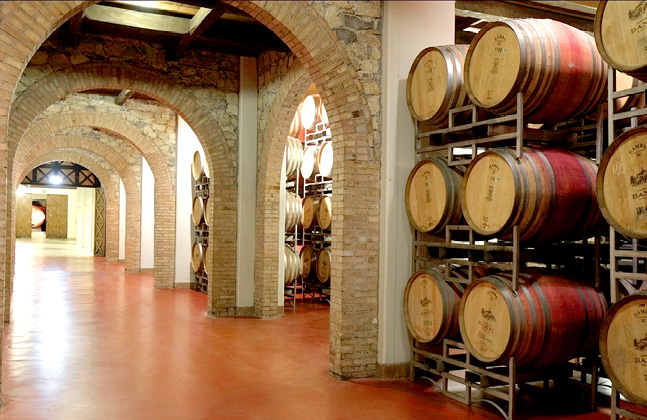Flowcrete’s Flooring Advice for the Winery Industry
10 Oct 2016
India’s wine industry is currently seeing an unprecedented period of growth, with an estimated production of 18 million litres this year, up from 17 million last year, and reaching 21 million litres by 2018.
This progress is being driven in part by a rising youth population combined with increasingly affluent numbers of middle class consumers – and there’s still a lot of potential in the market, as the current number of wine drinkers in the country is believed to be only around 20 per cent of India’s total population.
The Associated Chambers of Commerce and Industry of India (ASSOCHAM) has also indicated that major European wine producers are looking at setting up manufacturing facilities in India as it represents a thriving and lucrative market for them.
Getting the winery design right is critical to meeting the growing demand while also ensuring that the winery complies with the strict production standards of international clients.
The floor area is an important aspect of any winery development, as if an inadequate finish is chosen then it can become a cracked and ineffective surface that is not only a trip risk, but which can also present a contamination issue, as harmful germs, mould, bacteria and contaminants can easily get trapped and colonise within a broken floor layer.
Traditionally, India’s winery industry has relied on unprotected concrete floors, however this has meant that large sums of money has had to be spent on repairing, replacing and refurbishing floors when they fail. Concrete is not up to the task at hand mainly because the high alkaline nature of wine combined with the inevitable spillages means that the floor will face frequent chemical attacks that concrete is not able to withstand.
Alongside exposure to chemicals and acidic fruit juice, the floor will also be subjected to wear and tear from heavy foot and forklift traffic, regular steam cleaning, frequent wet processing activities, fluctuating moisture levels and point loading from heavy equipment.
In order to withstand all of these operational conditions an easy-to-clean and robust floor coating should be applied, especially in the production and fermentation zones due to the intensive and challenging conditions inherent to these locations. This requirement has led to an increasing number of wineries specifying specialist resin flooring that is food grade compliant, antimicrobial, highly durable and chemical resistant.
Resin floors are particularly effective as they can be supplied in thick, hardwearing formulations that will maintain a seamless, impervious and colourful finish for an extended period of time. The versatility of resin flooring also means that solutions can be installed that are tailored to specific winery areas. For example polyurethane systems with bactericidal agents incorporated within the floor’s resin matrix are ideal for even the largest and most intensive production areas.
Filling and bottling areas is an equally challenging environment in which spillages can lead to stains and pooling. There is a responsibility here as well to keep the employees safe in wet areas. Polyurethane floors with anti-slip aggregates broadcast into the finish can help to keep these zones both clean and safe.
Winery tasting rooms are a welcoming space where the floor’s aesthetics need to tie into the interior design scheme to create a pleasing environment for patrons. Decorative epoxy systems are available that will deliver the required visual impact while also providing the necessary cleanability, functionality and durability properties.
The floor in the winery’s cold room has to be resilient to extreme temperatures and should have anti-skid properties to safeguard staff and visitors. The compressive strength of the floor also needs to be good enough to resist point loading from metal racks of heavy wooden barrels.
Aroma is not only an important quality in wine, as the aroma of the floor can affect the micro climatic condition in which the wine is prepared, stored and preserved. A floor coating that emits low levels of toxic substances and Volatile Organic Compounds (VOCs) will have little impact on the winery’s interior air quality.
When designing or refurbishing a winery it is important to bear in mind that the building materials have a direct effect on how successfully each bottle is produced and stored - therefore it is imperative to ensure that the optimum conditions are achieved at each stage of the wine production cycle.
ENDS
Enjoy this post? Click below to share it with your network:
Press Contact
For Tremco CPG India's contact details please visit www.flowcrete.in/contact-us or email india@tremcocpg.com.
Notes to Editors
Tremco Construction Products Group(CPG) in India is a market leader in the manufacturing of seamless industrial and commercial resin Flooring solutions, waterproofing, roofing with insulation, systems for joints & durable sealants, admixtures, fibres as well as other specialist construction products & coatings. Tremco CPG India headquartered in Chennai serves expanding business opportunities across the South Asian Construction Chemical Industry.
For more information on the new group, please visit www.tremcocpg-india.in .Kindly drop us an email on india@tremcocpg.com for the any information or assistance.


